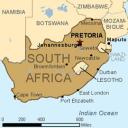– This is a follow up story on one I covered earlier here: ➡ and here: ➡.
– – – – – – – – – – – –
At the end of January, more than 200,000 crop varieties from Asia, Africa, Latin America and the Middle East—drawn from vast seed collections maintained by the Consultative Group on International Agricultural Research (CGIAR)—will be shipped to a remote island near the Arctic Circle, where they will be stored in the Svalbard Global Seed Vault (SGSV), a facility capable of preserving their vitality for thousands of years.
The cornucopia of rice, wheat, beans, sorghum, sweet potatoes, lentils, chick peas and a host of other food, forage and agroforestry plants is to be safeguarded in the facility, which was created as a repository of last resort for humanity’s agricultural heritage. The seeds will be shipped to the village of Longyearbyen on Norway’s Svalbard archipelago, where the vault has been constructed on a mountain deep inside the Arctic permafrost.
The vault was built by the Norwegian government as a service to the global community, and a Rome-based international NGO, the Global Crop Diversity Trust, will fund its operation. The vault will open on February 26, 2008.
This first installment from the CGIAR collections will contain duplicates from international agricultural research centers based in Benin, Colombia, Ethiopia, India, Kenya, Mexico, Nigeria, Peru, the Philippines and Syria. Collectively, the CGIAR centers maintain 600,000 plant varieties in crop genebanks, which are widely viewed as the foundation of global efforts to conserve agricultural biodiversity.
“Our ability to endow this facility with such an impressive array of diversity is a powerful testament to the incredible work of scientists at our centers, who have been so dedicated to ensuring the survival of the world’s most important crop species,” said Emile Frison, Director General of Rome-based Bioversity International, which coordinates CGIAR crop diversity initiatives.
“The CGIAR collections are the ‘crown jewels’ of international agriculture,” said Cary Fowler, Executive Director of the Global Crop Diversity Trust, which will cover the costs of preparing, packaging and transporting CGIAR seeds to the Arctic. “They include the world’s largest and most diverse collections of rice, wheat, maize and beans. Many traditional landraces of these crops would have been lost had they not been collected and stored in the genebanks.”
For example, the wheat collection held just outside Mexico City by the CGIAR-supported International Maize and Wheat Improvement Center (CIMMYT) contains 150,000 unique samples of wheat and its relatives from more than 100 countries. It is the largest unified collection in the world for a single crop. Overall, the maize collection represents nearly 90 percent of maize diversity in the Americas, where the crop originated. CIMMYT will continue to send yearly shipments of regenerated seed until the entire collection of maize and wheat has been backed up at Svalbard.
Storage of these and all the other seeds at Svalbard is intended to ensure that they will be available for bolstering food security should a manmade or natural disaster threaten agricultural systems, or even the genebanks themselves, at any point in the future.
“We need to understand that genebanks are not seed museums but the repositories of vital, living resources that are used almost every day in the never-ending battle against major threats to food production,” Bioversity International’s Frison said. “We’re going to need this diversity to breed new varieties that can adapt to climate change, new diseases and other rapidly emerging threats.”
More… ➡


